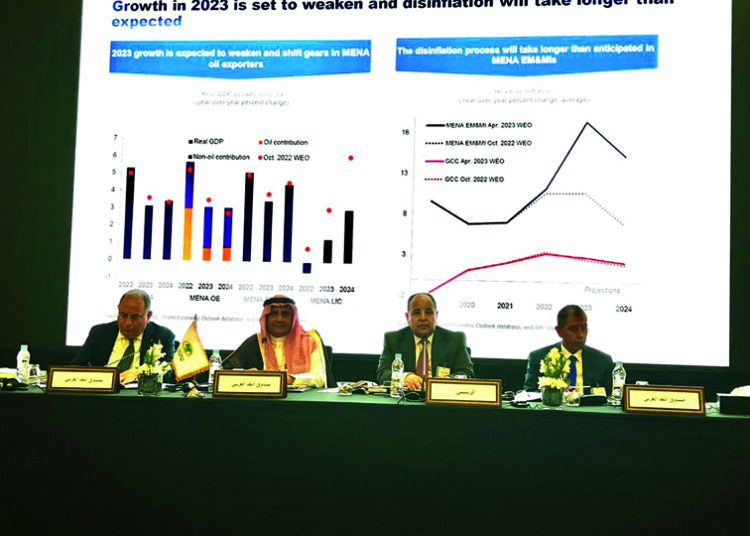Egypt’s Finance Minister Mohamed Maeet has presented to Arab finance ministers meeting in Morocco Egypt’s experience in achieving food security, within the framework of a plan for positive and flexible dealing with the global economic challenges that followed the pandemic, and were further aggravated by the war in Europe.
These challenges, he explained, have severely disrupted the global supply chains, as a result of imbalance of supply and demand, with an unprecedented soar in prices of basic commodities such as grains, edible oils, fertilisers, fodder, fish, and animal production.
Minister Maeet made the remarks while chairing the meeting of the Council of Arab Finance Ministers in Morocco.
These external repercussions, he said, were more severe in Egypt, which, like most Arab countries, imports a large percentage of its food needs, considering soaring population.
Minister Maeet noted that Egypt has worked on several axes in parallel tracks, to fulfill the basic needs of the people as a strategic priority, and managed to provide food commodities throughout the supply chain crisis, thereby sparing its people the acute shortage of commodities.
Egypt, he added, has been keen to provide the necessary resources to preserve sustainable stocks of strategic commodities, and is now working to become a hub for regional and international grain trade.
Minister Maeet also referred to the measures adopted regarding the export and import of basic commodities in a bid to meet the needs of the local market.
Despite the severe global pressures and the ensuing financing gap, Egypt has expanded the social protection umbrella, and to secure the resources needed for doubling the allocations to subsidize food commodities, easing burdens on 65 million citizens, who benefit from the subsidised prices, the minister said.






Discussion about this post